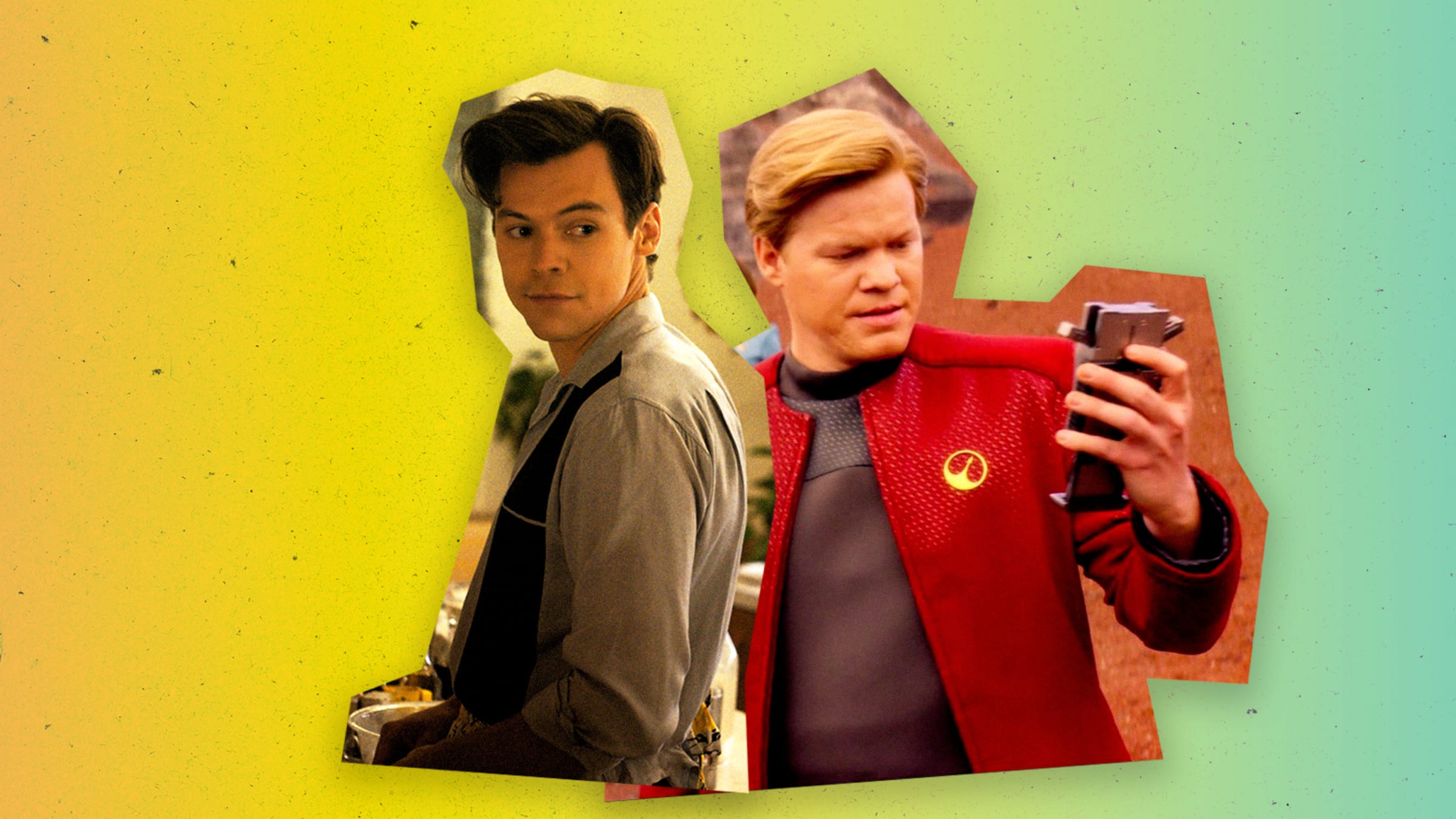Did the ‘Don’t Worry Darling’ Twist Ending Rip Off ‘Black Mirror?’
HUH?!

Photo Illustration by Erin O'Flynn/The Daily Beast/Warner Bros. and Netflix
The ending of Olivia Wilde’s thriller, starring Florence Pugh and Harry Styles, feels eerily similar to a certain episode of Netflix’s dystopian show “Black Mirror.” [Spoilers!]
The discourse surrounding the psychological thriller Don’t Worry Darling has been more inescapable than Julia Fox in a revealing outfit. You’ve surely read the flurry of negative reviews highlighting Harry Styles’ acting ability (or lack thereof), or the tabloid gossip about rumored on-set drama between director Olivia Wilde and star Florence “Miss Flo” Pugh, or seen the leaked video by “fired” actor Shia LaBeouf, or parsed the “SpitGate” video like the Zapruder film. But now that the film is out, we must discuss its absurd, logic-defying twist ending, which bears striking similarities to “USS Callister,” one of the finest episodes of Netflix’s sci-fi anthology series Black Mirror.
Alice (Pugh) and Jack Chambers (Styles) look like a picture-perfect couple. It’s the 1950s in Victory, California, a sunny, pastel-hued oasis with palm tree-lined streets that resembles Palm Springs. While Jack is off in the desert working on the top-secret “Victory Project” that employs all the townsmen, Alice spends her days shopping and gabbing with the fellow housewives, drinking cocktails by the pool, tidying up the house, and marinating meats so they’re nice and ready for when hubby comes home. Lording over paradise is Frank (Chris Pine), the sexy, charismatic founder of the Victory Project whose employees worship the ground he walks on.
When Alice—who is haunted by visions of spooky ballerinas—witnesses Margaret (KiKi Layne), one of the housewives, become detached and then later slit her own throat, and then sees an airplane mysteriously crash over the desert mountains, she starts to question her existence and embarks on a mission to find out what exactly the Victory Project is.
What she discovers, sadly, doesn’t make a whole lot of sense.
You see, in the present-day, Jack is an unemployed, bespectacled loser with patchy facial hair who feels emasculated and overlooked by his wife Alice, an ER surgeon dedicated to her life-saving work. Instead of looking for jobs or being grateful that he somehow landed a beautiful doctor (what she sees in this sad sack is a mystery), Jack spends his days glued to YouTube, consuming videos by Frank, a prominent men’s rights activist in the Jordan Peterson mold. The film’s most unintentionally-funny moment is Styles’ incel reveal, because really… Harry Styles as an incel?!
Frank doesn’t just preach about a toxically masculine dreamscape where women are the subservient housewives and men the alpha breadwinners, but has created a virtual simulation—the Victory Project—that all the men in the town have signed up for, and few of the women (Alice was sedated and hooked up to it; Bunny, another housewife played by Wilde, chose to be transported there in order to reunite with her dead children).
In this 1950s-set simulation, gone are Jack’s unfortunate facial hair and glasses. He has morphed into a dashing, confusingly accented Brit who still cannot act. He must exit the simulation for eight hours a day (while he’s at his “job” as a technical engineer for the Victory Project) to do some unspecified real-life labor in order to compensate for living his best fantasy-life, and it’s during his absence that Alice investigates the Victory Project headquarters and plots her escape.
Which brings us to “USS Callister.” The episode aired back in December 2017, serving as the fourth season premiere of Netflix’s Black Mirror. Directed by Toby Haynes (Doctor Who) and scripted by William Bridges and series creator Charlie Brooker, it tells the tale of Robert Daly (Jesse Plemons), a gifted programmer and CTO of Callister Inc., a company he co-founded with James Walton (Jimmi Simpson) that’s most famous for the open-world multiplayer online game Infinity, which inserts users into a simulation where they control a spaceship.
Despite his status as the co-founder of Callister and chief architect of Infinity, Daly—rotund, balding, and bespectacled—is routinely mocked by his colleagues, who see him as a leering creep, and looked down upon by James, who treats him like a low-level employee. As the episode slowly reveals, Daly has created a retro, 1960s Star Trek-like simulation based on his favorite TV series, Space Fleet, where he is the alpha-male captain (Plemons does a wonderful Captain Kirk impression). He’s created clones of the real-life colleagues he resents and/or covets, most of whom are women or people of color, by stealing their DNA (this process remains opaque at best) and inserting them into the simulation, forcing them to act as his docile crew—heeding his every command, accepting his deeply unwanted kisses, and generally being digital slaves. Colleagues who refuse his demands are turned into villains or giant, slimy alien-bugs. He’s so vindictive that he’s even stripped them of their genitals.
When Daly clones a new programmer, Nanette (Cristin Milioti), he’s taken a liking to and plugs her into the Space Fleet simulation, she leads a crew rebellion against Daly, hoping to free them from his bondage.
Both Don’t Worry Darling and “USS Callister” are social commentaries of incel culture—the online community of men known as “involuntary celibates” who believe they’re unable to land a sexual partner and have allowed their bitterness over this to translate to misogyny and racism—and toxic masculinity that center an aggrieved incel who partakes in a period simulation where the object of their affection has been inserted against their will and forced to bend to the man’s every whim and desire. The woman ultimately causes an uprising and breaks out of the simulation, forming and executing her plot during the incel’s downtime. Even the simulation tech looks similar: two small circular disks inserted on the temples that cause one’s eyes to roll back into their head.
Two years after “USS Callister” aired to near-universal acclaim, eventually winning four Emmys—including Outstanding Television Movie and Outstanding Writing for a Limited Series, Movie, or Dramatic Special—the initial script for what would become Don’t Worry Darling, written by Dick Van Dyke’s grandsons Carey and Shane Van Dyke, landed on the 2019 Black List of the best unproduced screenplays. When Wilde boarded the project, she brought on writer Katie Silberman, who’d previously collaborated with her on Booksmart, to overhaul the story—in the process drastically altering its ending.
